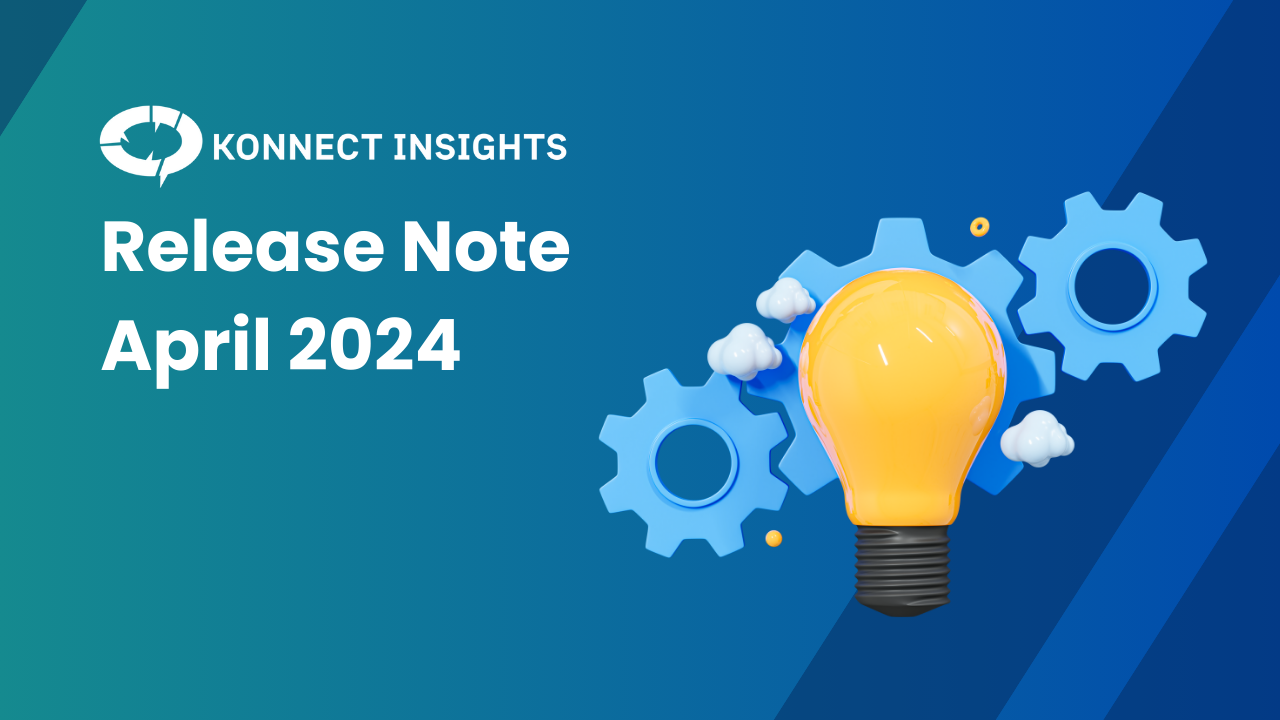In the dynamic landscape of the digital age, information travels at lightning speed. Public perception can make or break a business, and the management of brand reputation has taken center stage. Social media platforms now have a persuasive presence. This has made brand reputation management both a challenge and an opportunity.
This is where the significance of social analytics comes into play. Social media analytics provide a comprehensive toolkit that not only monitors and manages brand reputation but also proactively nurtures it.
The fusion of social media analytics and brand reputation management has reshaped the business landscape. These two pillars have revolutionized how brands interact with their audiences. Social media is not merely a marketing tool.
The evolution of social media analytics has become a critical avenue for brand reputation management. No brand can thrive in the modern marketplace without focusing on social media analytics and brand reputation management.
Let’s delve into the reasons brands should wholeheartedly focus on these facets.
1. The Power of Social Media Influence
Social media has changed from being just a communication tool to an influential platform that shapes public opinion. Social media now molds consumer behavior and directly impacts brand perception. People don’t just consume content on social media; they actively engage, share, and opine. Social media engagement creates a dynamic environment to
- establish brand narratives
- reinforce brand knowledge
- dismantle the negative brand perception
All this, in real-time. Brands can now leverage it to establish meaningful connections and build strong emotional ties with their audience.
2. A Reflection of Brand Identity
Social media serves as a digital extension of a brand’s identity. How a brand presents itself on these platforms reflects its values, culture, and ethos. Effective reputation management makes sure that the audience perceives the brand the way you want them to.
It is important to align the brand’s online persona with its intended image. This ensures consistency and authenticity across channels. By utilizing social media analytics, you can fine-tune strategies for the greatest impact.
3. Influence Over Consumer Purchase Decisions
Consumers today are more informed than ever before. They turn to social media for product information, reviews, and recommendations. According to studies, a large portion of consumers use social media sites to help them make selections about what products to buy. Strategic management and monitoring of a brand’s reputation can considerably influence these choices in the brand’s favor.
4. Mitigation of Reputation Crises
A crisis can emerge swiftly in the digital age, propelled by a single tweet, post, or viral video. Such crises have the potential to inflict lasting damage on a brand’s reputation. Brands can identify early warning signs with social analytics. This enables them to resolve issues and problems quickly. Quick and honest replies can reduce unpleasant situations and strengthen the brand’s dedication to its consumers.
5. Amplification of Positive Engagement
Social media provides a direct line of communication between brands and consumers. Engaging with customers, responding to queries, and acknowledging feedback on social platforms fosters a sense of connection and community. Positive interactions are readily shared, contributing to the amplification of positive brand sentiment.
Social media analytics can pinpoint these instances of engagement, offering insights into what resonates with the audience and driving further positive interactions.
6. Data-Driven Decision Making
Social media analytics arm brands with a treasure trove of data. This data unveils invaluable insights into consumer behavior, preferences, and trends. Brands can fine-tune their strategies and craft more personalized and targeted content. A data-driven approach not only enhances reputation management efforts but also yields better overall business performance.
7. Proactive Reputation Enhancement
The role of social media analytics isn’t limited to damage control. Brands can proactively enhance their reputation by identifying trends, sentiments, and emerging conversations. With the help of this knowledge, brands can strategically position themselves as thought leaders. This will contribute positively to relevant discussions and gain credibility in their industry.
8. Competitive Advantage
In today’s competitive marketplace, a favorable reputation can be a key differentiator. Brands that excel in social media analytics and reputation management can set themselves apart from competitors. A positive reputation breeds trust, which can lead to increased customer loyalty, advocacy, and market share.
These two disciplines empower brands to navigate the complexities of the digital landscape, sculpt their image, and create meaningful relationships with their audience. As technology continues to advance and communication channels evolve, the synergy between social media analytics and brand reputation management will remain a cornerstone of modern business success.
The Role of Social Media in Brand Reputation
Social media has fundamentally transformed the dynamics of brand reputation. People gather to share their experiences, opinions, and thoughts about various brands. So, businesses can no longer afford to view social media as a one-dimensional platform. They must recognize it as a multifaceted arena for shaping and managing brand reputation.
1. A Channel for Direct Interaction
Social media acts as a direct bridge between brands and customers. It offers a real-time platform for interaction, enabling brands to engage in conversations, respond to queries, and address concerns promptly. This accessibility and responsiveness contribute to a positive brand image, showcasing the brand’s commitment to customer satisfaction.
2. Amplification of Brand Messages
Social media enables brands to amplify their messages to a global audience. Through carefully crafted content, brands can communicate their values, mission, and offerings. When consistently aligned with the brand’s identity, these messages can enhance brand recognition and establish a favorable reputation.
3. Consumer-Generated Content and Advocacy
Customers often share their experiences with brands on social media, creating a treasure trove of user-generated content. Positive experiences shared by customers act as authentic endorsements, building brand credibility. Encouraging and acknowledging user-generated content fosters brand advocacy, where loyal customers become enthusiastic promoters.
4. Rapid Spread of Information
News and information, both positive and negative, can spread rapidly on social media. A well-received product launch, a heartwarming customer story, or even a single negative incident can be magnified through social sharing. This rapid dissemination necessitates brands to be vigilant and proactive in managing their online presence.
5. Influencing Brand Perception
Social media allows brands to craft narratives that influence how they are perceived. By sharing stories, values, and behind-the-scenes glimpses, brands can humanize themselves, resonating on a personal level with their audience. Thoughtful curation of content shapes the narrative, gradually molding the brand’s reputation.
6. Crisis Management and Recovery
During crises, social media is often the first platform where issues come to light. Brands that respond promptly, transparently, and empathetically can mitigate reputational damage. Social media serves as a crisis management tool, allowing brands to address concerns, clarify misconceptions, and demonstrate commitment to resolution.
7. Real-Time Feedback and Improvement
Social media provides an avenue for immediate feedback. Brands can gather insights from comments, reviews, and conversations, identifying areas for improvement. This real-time feedback loop enables brands to adapt swiftly, enhancing the customer experience and consequently bolstering their reputation.
8. Influence of Influencers
Social media influencers wield substantial influence over their followers. Collaborating with relevant influencers can positively impact brand perception. Their endorsements, if aligned with the brand’s values, they can introduce the brand to new audiences, expanding its reach and reputation.
The Importance of Social Analytics for Brand Reputation Management
At the heart of effective brand reputation management lies social analytics—the process of collecting, analyzing, and interpreting data from social media platforms to gain insights into brand perception and performance. Here’s a comprehensive exploration of why social analytics is pivotal in safeguarding and enhancing brand reputation:
Monitoring Brand Mentions and Sentiment
Social analytics tools empower businesses to monitor mentions of their brand across various social media channels. Through sentiment analysis, which discerns whether mentions are positive, negative, or neutral, brands can swiftly respond to both praise and criticism. This rapid response demonstrates their commitment to customer satisfaction and engagement, which can significantly influence brand perception.
Identifying Brand Advocates and Influencers
In the digital realm, certain individuals wield substantial influence over their followers’ opinions and decisions. These influencers can have a profound impact on a brand’s reputation. Social analytics assist in identifying both brand advocates and influential personalities. By collaborating with these influencers, brands can effectively amplify positive narratives and strengthen their reputation.
Tracking Online Conversations and Trends
In the ever-evolving landscape of social media, trends, and discussions can emerge overnight, catching brands off-guard. Social analytics tools provide real-time insights into ongoing conversations and emerging trends. This empowers brands to proactively participate in discussions or respond effectively to avoid being embroiled in negative trends that could potentially harm their reputation.
Mitigating Negative PR and Crisis Management
In the age of social media, negative publicity can escalate rapidly, causing significant damage to a brand’s reputation. Social analytics offers a preemptive advantage by providing real-time insights into emerging crises. This allows brands to respond swiftly and effectively, thereby containing potential reputational harm and maintaining a positive image.
Measuring the Impact of Reputation Management Strategies
An essential aspect of brand reputation management is quantifying the impact of strategies deployed. Social analytics aids in this endeavor by tracking metrics such as engagement rates, sentiment changes, and follower growth. These data-driven insights enable brands to refine and optimize their reputation management strategies over time.
Leveraging Social Analytics for Brand Reputation Management
To harness the full potential of social analytics for brand reputation management, a well-defined strategy is paramount. Here are key steps to consider.
Choosing the Right Social Analytics Tools
Selecting the appropriate social analytics tools lays the foundation for a successful reputation management strategy. Platforms such as Brandwatch, Sprout Social, and Hootsuite offer comprehensive solutions for monitoring brand mentions, sentiment analysis, and trend tracking.
Setting Up Relevant Metrics and KPIs
To effectively measure the impact of reputation management efforts, brands must define relevant Key Performance Indicators (KPIs). Metrics such as sentiment score, share of voice, and engagement rates provide valuable insights into brand perception and reputation.
Conducting Regular Analysis and Reporting
Consistency is key in brand reputation management. Regularly analyzing social analytics data allows brands to stay abreast of sentiment shifts and emerging trends. This proactive approach empowers brands to make informed decisions and promptly adjust strategies as needed.
Engaging with Customers and Responding to Feedback
Central to the ethos of social media is the concept of engagement. Brands that actively engage with customers, whether by responding to comments, addressing concerns, or expressing gratitude for positive feedback, demonstrate their attentiveness and customer-centric approach. This interaction significantly contributes to nurturing a positive brand image.
Conclusion
In the digital age, where the impact of social media on brand reputation cannot be underestimated, harnessing the power of social analytics is not just a strategic choice; it’s an imperative.
Brands that master the art of using social media analytics for reputation management are better equipped to navigate challenges, seize opportunities, and cultivate a positive brand image that resonates with their audience.
By vigilant monitoring, thoughtfully analyzing, and proactively engaging on social media platforms, brands can confidently traverse the dynamic landscape of brand reputation management. In doing so, they fortify their reputation, bolster customer loyalty, and ultimately thrive in the digital era.




























